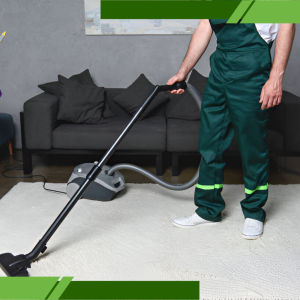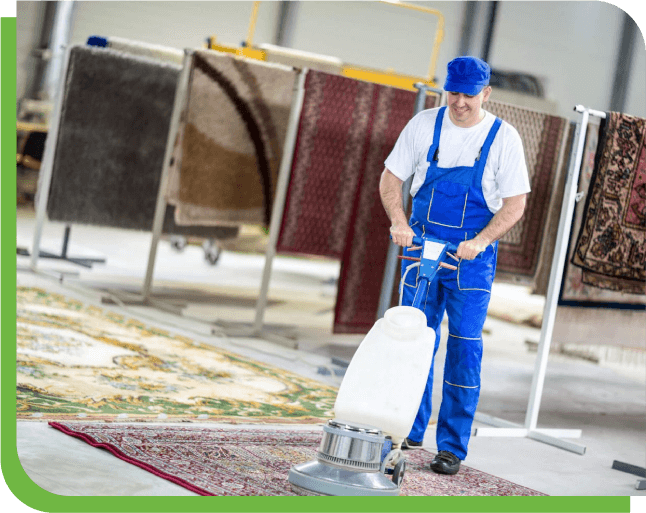Get in touch
Fill this up to proceed

We are committed to providing a world-class carpet, rug, upholstery, drapery or mattress cleaning services that will open your door to a happier and healthier green indoor environment.
Getting better sleep isn’t just about sticking to a routine or buying fancy pillows. Your feet may hold the real secret. A sleep-friendly bedroom is one that supports relaxation in every way, from the air you breathe to the surfaces you touch. It’s more than design. It’s about cleanliness, comfort, as well as what your body needs to truly unwind.
Many people focus on sleep tips like dimming the lights or playing calming sounds. Those can help, but they miss a key detail: your environment’s cleanliness. Dust, dirt, and old odors can silently affect how well you sleep. That’s why the first step toward restful nights might actually be a deep clean, especially of your carpet.
A fresh, clean room feels different. It smells better, feels lighter, and invites rest. What you clean first affects your room’s look and how it supports your body at night. If you want a true sleep-friendly bedroom, cleaning your carpet isn’t optional it’s essential. Let’s explore how this small step makes a big difference in your overall sleep quality.
The carpet might feel soft under your feet, but it can also be a hidden source of nighttime problems. Over time, carpets collect allergens like dust, pollen, pet dander, and even mold spores. Walking on your carpet stirs up these pollutants, which you breathe in while you sleep. A sleep-friendly bedroom can’t exist with dirty flooring that impacts air quality.
Even if you vacuum weekly, the deep layers of your carpet still hold onto tiny particles that your eyes can’t see. That’s why vacuuming alone isn’t enough. To truly support your health and sleep, your carpet needs professional cleaning every 6 to 12 months. Services that offer deep carpet cleaning remove what vacuuming leaves behind, helping you breathe easier and rest better.
If you often wake up congested or with headaches, your carpet may be the culprit. A clean carpet improves indoor air and gives your body a calm, stable environment at night. A sleep-friendly bedroom in Somis should make you feel better the longer you spend in it, not worse. Cleaning your carpet is the first big step in getting there.

The air you breathe in your bedroom affects how well you sleep. In a sleep-friendly bedroom, the air should feel light and fresh, not stuffy or full of lingering smells. But if your carpet is holding onto old dust and bacteria, the air will suffer, even if the room looks clean on the surface.
When dust floats into the air at night, your body has to work harder to breathe. That can lead to poor oxygen flow and sleep disturbances. Good air quality is one of the least talked about but most important parts of restful sleep. One way to improve it is by reducing hidden pollutants in your carpet and other fabrics.
Using non-toxic cleaners or hiring eco-conscious pros helps you avoid strong chemical smells that can irritate your throat or nose. Natural carpet care options leave your bedroom feeling cleaner without triggering your senses.
The beauty of a sleep-friendly bedroom is that every part of the space works together for better rest. When the air is cleaner, your brain relaxes, your muscles loosen up, and your whole body responds. That all starts with removing the dust you can’t see but definitely feel.

Many people wash their sheets every week and think that’s enough. However, if you haven’t cleaned the floor or the curtains in months, you’re overlooking an important aspect. Taking care of every surface, not just the obvious ones, is essential for a truly sleep-friendly bedroom.
Your bed isn’t the only thing collecting skin cells and oils. Upholstered chairs, rugs, curtains, and pillows all hold onto particles that can mess with your breathing and comfort. Even the mattress itself should be vacuumed and aired out regularly. When everything in the room feels clean, your mind takes that as a signal: it’s safe to relax.
And remember, if you’re spraying fabric fresheners or using harsh-scented products, you might be replacing dust with irritants. That’s why it’s smarter to use non-toxic methods that actually remove dirt rather than just covering it up. A sleep-friendly bedroom focuses on clearing out the mess rather than just masking it.
If you want to feel truly rested, commit to a full-room cleaning routine. It doesn’t need to be daily, but it does need to be thorough. Clean floors, clean air, and clean fabrics work together to support deep, uninterrupted sleep.
Cleaning doesn’t have to be overwhelming. With small, steady habits, you can turn your bedroom into a sleep sanctuary. For a sleep-friendly bedroom, aim to vacuum twice a week and book professional carpet cleanings every six months. Wash sheets weekly and make time each month to clean curtains, throw pillows, and your mattress.
Keep clutter out of the room. Visual mess leads to mental clutter. Even wiping down surfaces with a natural cleaner can reduce airborne dust. Open your windows during the day to refresh the air. These small actions have a cumulative effect. They send messages to your brain that the space is calm and under control.
Your sleep commences even before you lay your head on the pillow. It starts the moment you step into a space that feels peaceful. Creating a sleep-friendly bedroom means treating your room as a place for healing and rest, not just a spot to crash. The more care you give it, the more it will give back.
With the right habits and the right help, like trusted professional cleaners, you’ll sleep better, breathe easier, and feel more energized every day.
You should deep clean bedroom carpets at least once every 6 to 12 months, especially if you have pets, allergies, or open windows often.
It’s a space designed for calm and comfort, low noise, clean air, minimal clutter, and properly cleaned fabrics like carpets, curtains, and bedding.
Yes. Dirty carpets trap allergens and pollutants that can trigger breathing issues and disrupt sleep, especially if you’re sensitive to dust or mold.
Yes. Natural or fragrance-free cleaners help maintain clean air without harsh scents that might irritate your nose or throat during sleep.
Focus on the carpet, curtains, rugs, pillows, and mattress. These all collect dust and allergens and should be cleaned regularly to support restful sleep.

We are committed to providing a world-class carpet, rug, upholstery, drapery or mattress cleaning services that will open your door to a happier and healthier green indoor environment.
We are committed to providing a world-class carpet, rug, upholstery, drapery or mattress cleaning services that will open your door to a happier and healthier green indoor environment.